
What is Section 125 of the CrPC is?
This Blog is about the Key Provision of Section 125 of the CrPC and what are the requirement in terms of filing the application needs.
What is Section 125 of the CrPC is;
The Code of Criminal Procedure (CrPC) is a legal code that outlines the procedural rules to be followed in criminal cases in India. Section 125 of the CrPC deals with the issue of maintenance for wives, children, and parents. It is an important provision that seeks to protect the rights of dependent family members who are unable to support themselves financially. In this article, we will discuss the key provisions of Section 125 and important things to consider while filing a case under this section.
Key Provisions of Section 125 of the CrPC:
Under Section 125, if a husband refuses or neglects to maintain his wife, children, or parents, then the wife, children, or parents may apply to a Magistrate for an order of maintenance. The Magistrate may order the husband to make a monthly allowance for the maintenance of his wife, children, or parents, as the case may be. The amount of maintenance may vary depending on the financial position of the husband and the needs of the dependent family member.
One of the most important provisions of Section 125 is that it applies to all religions, including Hindus, Muslims, Christians, and others. This means that any wife, child, or parent who is unable to support themselves financially can approach the court for maintenance, regardless of their religion. Additionally, the provision applies to both wives who are married under personal law and those who are married under the Special Marriage Act.
Another important provision of Section 125 is that it allows for an interim order of maintenance. This means that a wife, child, or parent who is in urgent need of financial support can apply for an interim order, which will be valid until a final order is passed. The interim order may be passed after the husband is served with notice of the application and has an opportunity to be heard. It is important to note that the interim order can be modified or cancelled at any time during the proceedings.
The CrPC also provides for the enforcement of orders passed under Section 125. If the husband fails to comply with an order of maintenance, the wife, child, or parent may approach the Magistrate for the execution of the order. The Magistrate may order the attachment and sale of the husband's property, or even his detention in a civil prison, until the maintenance amount is paid.
Important Things to Consider While Filing a Case Under Section 125:
-
Eligibility: Before filing a case under Section 125, it is important to ensure that the dependent family member is eligible for maintenance. In the case of a wife, she must be unable to support herself financially. In the case of a child, the child must be below the age of 18 and unable to support themselves financially. In the case of a parent, they must be unable to support themselves financially.
-
Jurisdiction: The application for maintenance should be filed in the court that has jurisdiction over the area where the dependent family member resides. If the husband resides in a different area, the application may be filed in the court where the husband resides or where the marriage was solemnized.
-
Documentation: It is important to provide all relevant documentation when filing a case under Section 125. This may include proof of marriage, birth certificates of children, and evidence of the husband's income and assets.
-
Evidence: The dependent family member must provide evidence to support their claim for maintenance. This may include evidence of the husband's neglect or refusal to maintain, evidence of the dependent family member's financial situation, and evidence of the husband's income and assets.
Tags
General Legal Hashtags
- #PhenixBayLegal
- #LegalAdviceIndia
- #IndianLawUpdates
- #LegalServicesIndia
- #LegalBlogsIndia
Regional Hashtags (Geographical Coverage)
- #NorthIndiaLegalUpdates
- #SouthIndiaLegalAdvice
- #EastIndiaLawServices
- #WestIndiaLegalResources
- #NortheastIndiaLaw
City-Specific Hashtags
- #DelhiLegalServices
- #MumbaiLawUpdates
- #BangaloreLawAdvice
- #ChennaiLegalHelp
- #KolkataLegalConsultation
- #HyderabadLawyers
- #PuneLegalTips
- #AhmedabadLegalServices
- #LucknowLawConsultation
- #ChandigarhLegalAdvice
Broader Indian Legal System Hashtags
- #IndianLegalSystem
- #IndianCourtUpdates
- #LegalAwarenessIndia
- #LawInIndia
- #LegalRightsIndia
- #LawFirmIndia
- #LegalSupportIndia
- #LegalUpdatesIndia
- #LegalAwarenessCampaign
More >>

Jyoti Sharma vs. Vishnu Goyal & Anr. 2025 INSC 1099
This was a long running legal battle between a landlord and her tenants over a shop. The landlord, Jyoti Sharma, wanted her shop back for two main reasons: The tenants had stopped paying rent. She needed the shop to expand her family's business (her bonafide need).
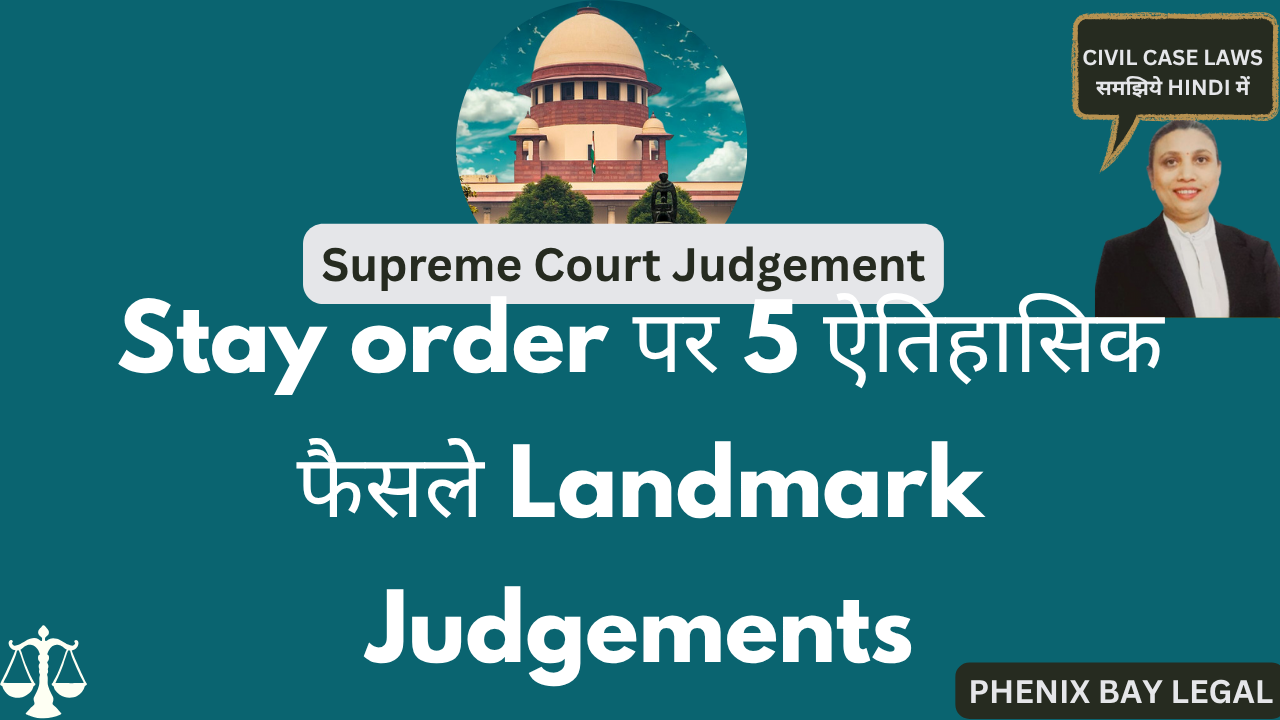
Landmark Judgement on Injunction
In civil, commercial, or even family disputes. But when is a simple injunction suit enough? When do you need to add a declaration of title? And how do courts balance urgency vs evidence in interim relief?
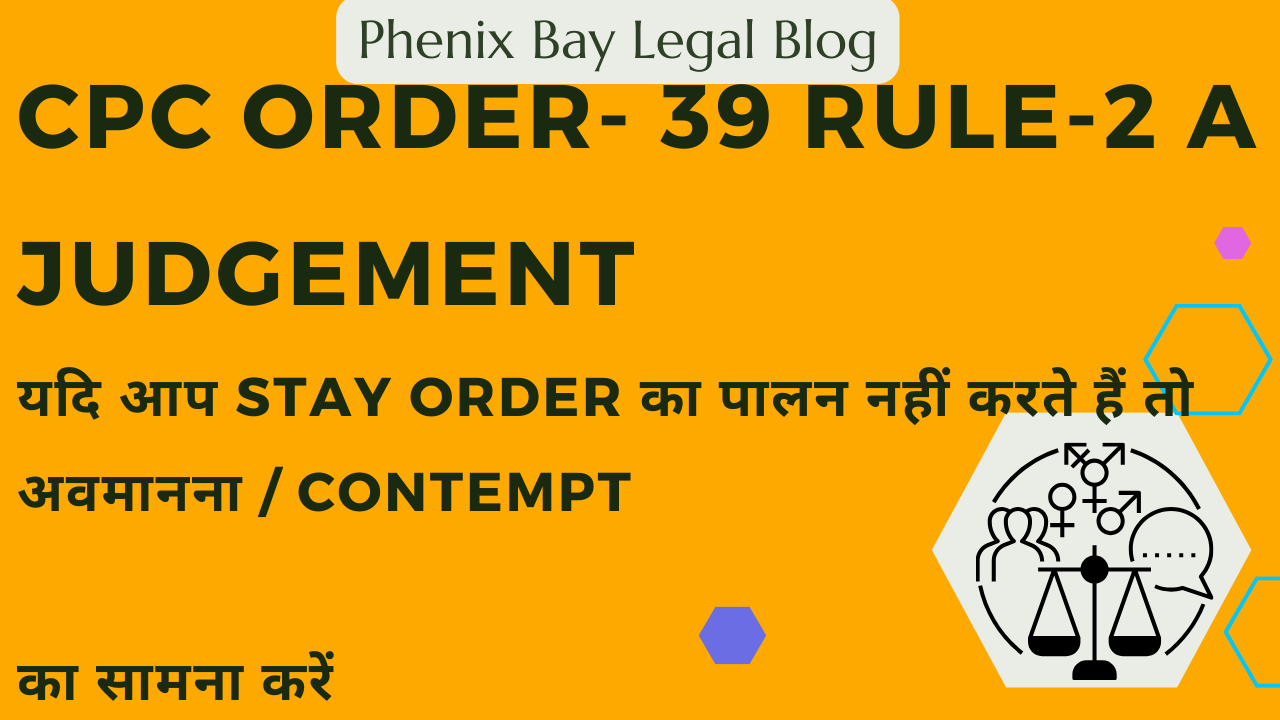
Case Analysis: Stay Order Violation and Contempt of Court by Supreme Court of India
Giving an undertaking to the court is equivalent to an order of injunction—any violation invites contempt proceedings.Injunction orders remain valid until formally vacated by a court—violation before vacation can lead to punishment.
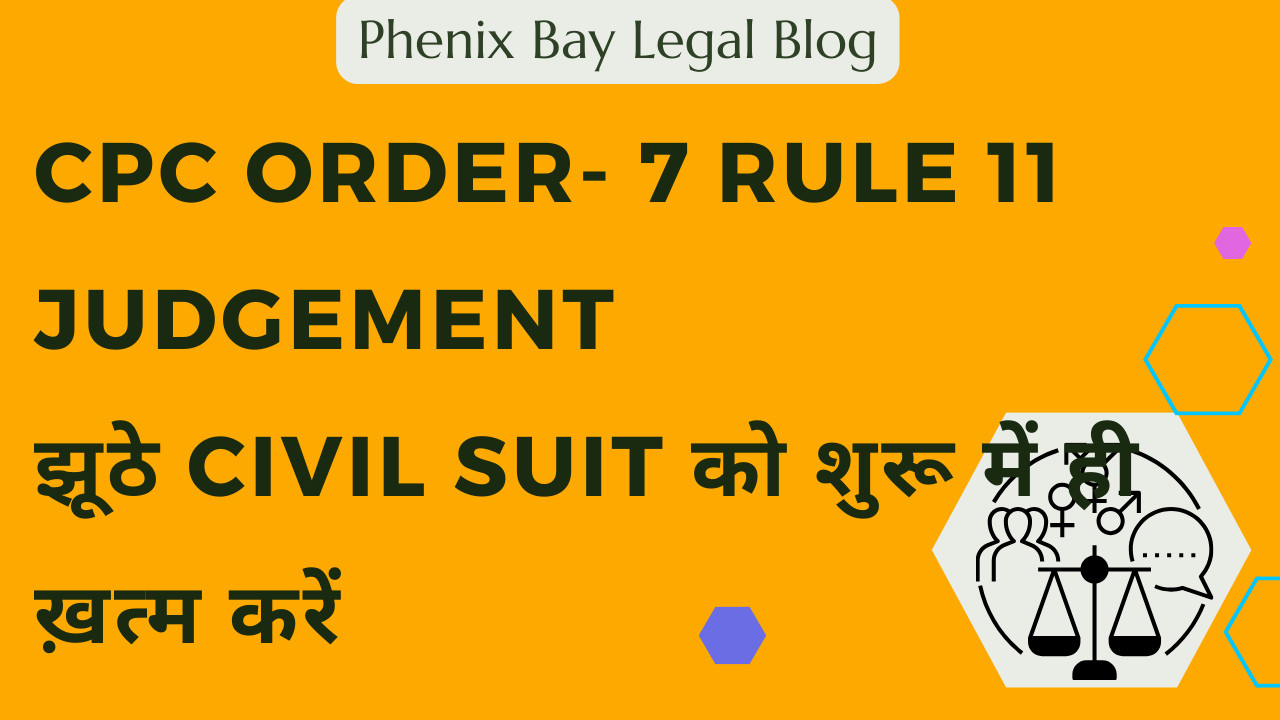
Order 7 Rule 11 of CPC Explanation in Land Mark Judgement
The Sopan Sukhdeo Sable judgment is a landmark ruling that reinforces Order 7 Rule 11 of CPC as a safeguard against frivolous and legally untenable claims. It highlights the importance of examining only the plaint’s contents to decide whether a suit should be dismissed at the threshold.
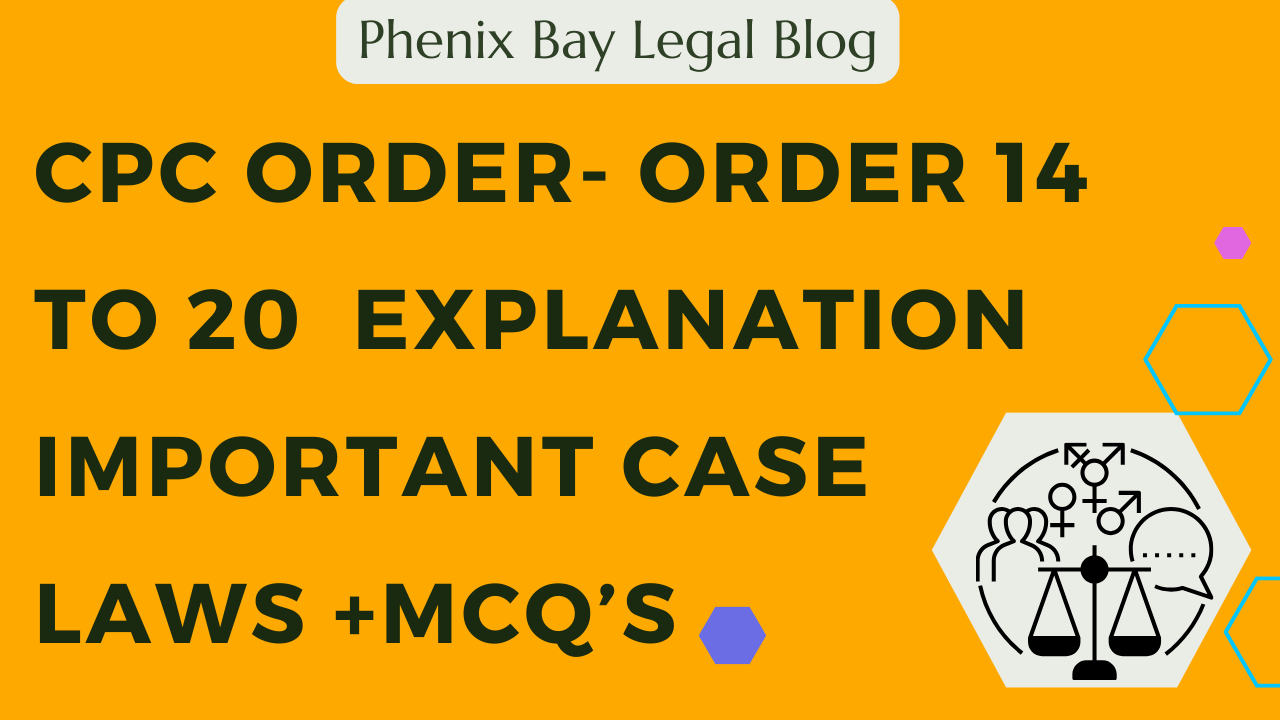
CPC Order- Order 14 to 20 Explanation IMPORTANT CASE LAWS +MCQ’S for Judiciary Exam Preparation
CPC Order- Order 14 to 20 Explanation IMPORTANT CASE LAWS +MCQ’S for Judiciary Exam Preparation
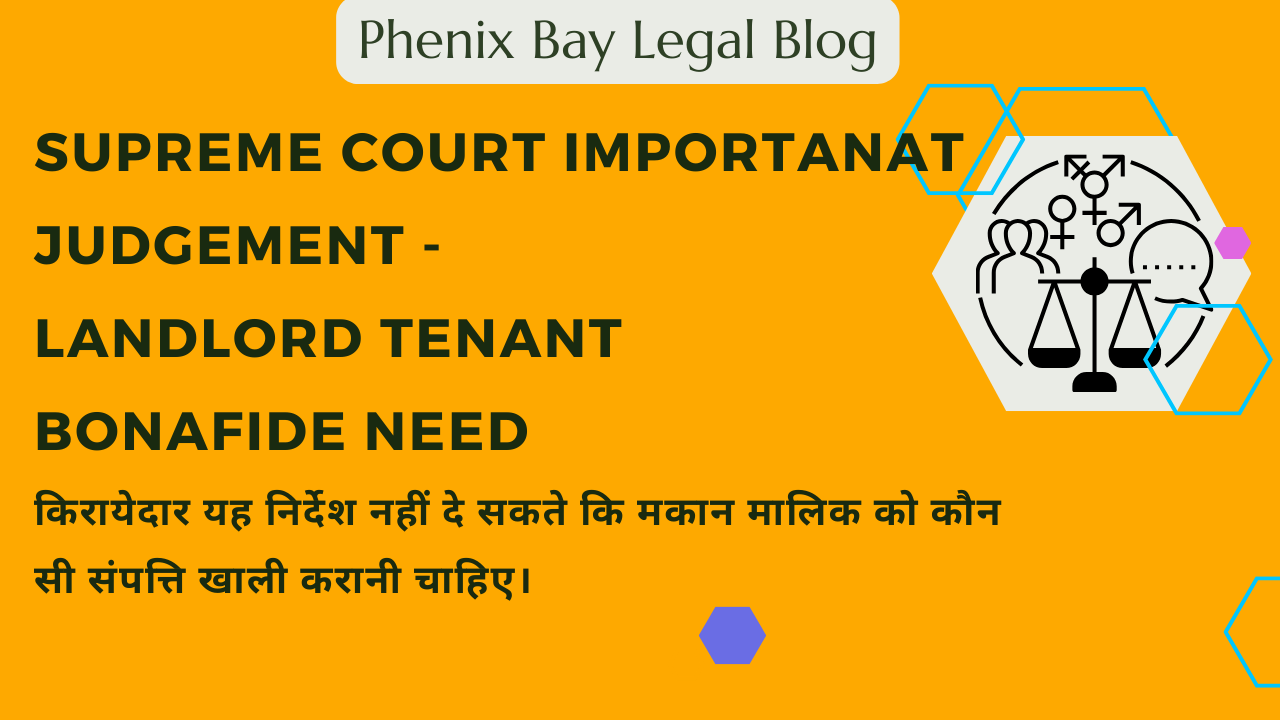
Supreme Court ImportanatJudgement - Landlord Tenant Bonafide need
This case involves a dispute over eviction of a tenant based on the bona fide need of the landlord. The Supreme Court ruled in favor of the landlord, reversing the High Court's decision. Below is a detailed breakdown of the judgment with relevant legal principles, precedents, and reasoning.